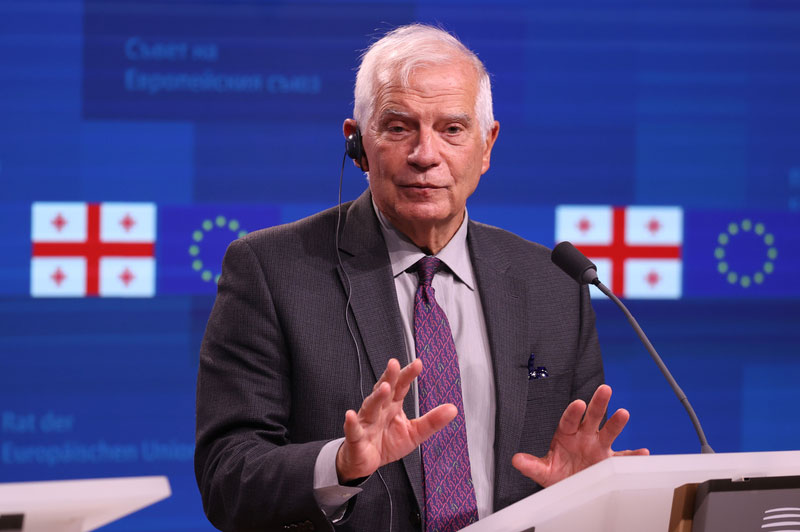“The European Union accession is a merit-based process. There are no shortcuts and no magic involved. It is not a matter of political declarations, but [of] political will that converts wills in results,” stated Josep Borrell, the EU High Representative for Foreign Affairs and Security Policy at the joint press point with Georgian Prime Minister Irakli Garibashvili and the European Commissioner for Neighbourhood and Enlargement Olivér Várhelyi in Brussels.
Borrell said, “only visible and tangible progress in reforms can drive this process forward,” stressing that “the accession process needs to be accompanied by a national consensus, and the political forces have to find the way to work together. And, once again, it is not just a matter of the government but all political parties.”
He noted that the European ambitions of Georgia “always come with responsibilities.”
“First, a responsibility to continue with important reforms, especially on the priorities – the 12 priorities – identified by the European Commission.
Second, a responsibility to try to overcome polarisation, to build bridges across the political spectrum and to focus all collective efforts of the Georgian nation to reach the proclaimed objective to join the European Union, which is not only something that the government has to do, but the whole political spectrum and the whole society.
The criteria and expectations are very clear when it comes to issues such as political culture based on inclusiveness, respect for the principles of democracy, the rule of law, the independence of judiciary, freedom of media, or alignment with the European Union’s standards and policies,” he underscored.
In his speech, Borrell mentioned that “Georgia’s performance recently has raised some concerns, such as the judiciary, the rule of law and media freedom, including increasing political pressure on independent oversight institutions and opposition media.”
“These areas are crucial. [They] are crucial when it comes to European values and principles. We count on Georgia’s efforts to address the existing shortcomings. Once again – the government first, the whole political spectrum after, and the whole civil society also,” he asserted.
